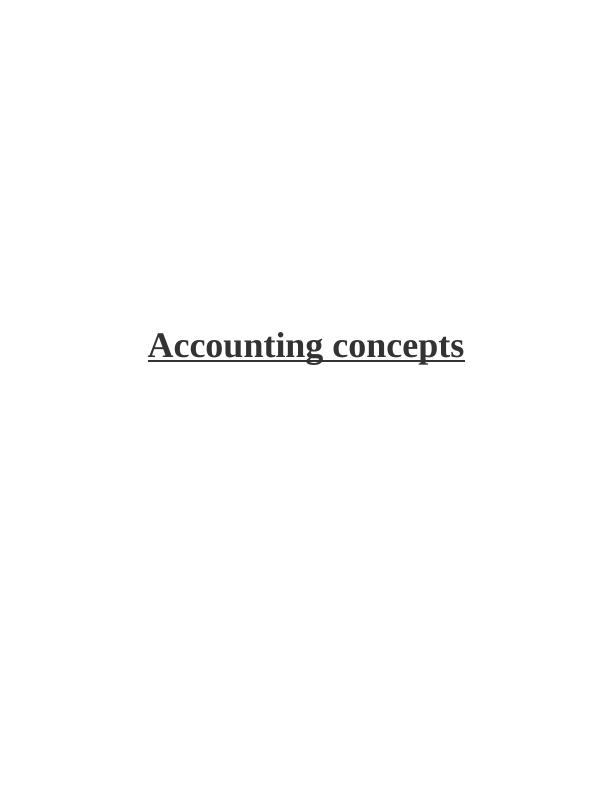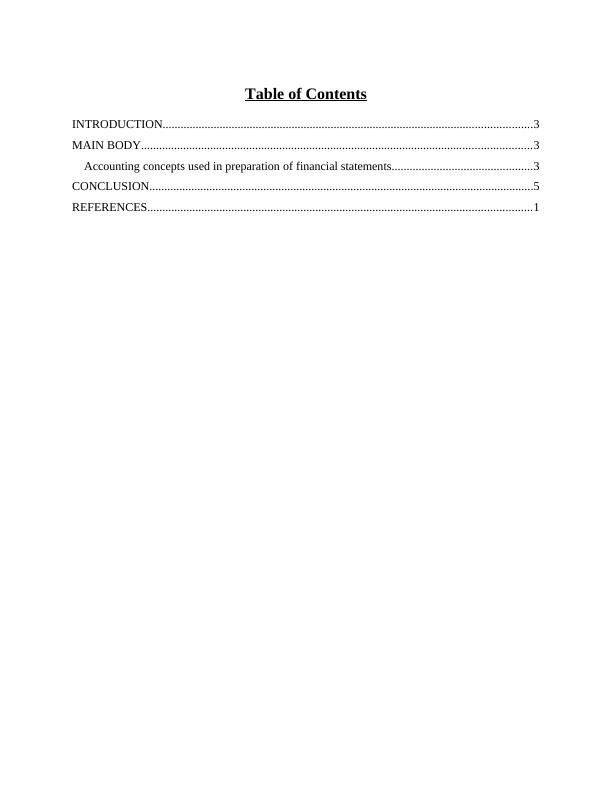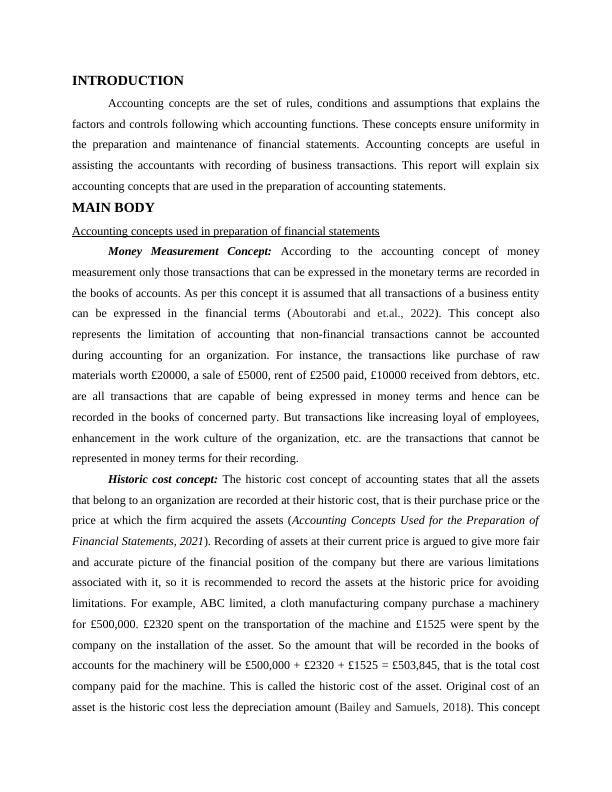Accounting Concepts Used in Preparation of Financial Statements
6 Pages1317 Words450 Views
Added on 2023-06-10
About This Document
This report explains six accounting concepts used in the preparation of financial statements including money measurement, historic cost, going concern, business entity, dual aspect, and realization concepts. These concepts ensure uniformity in the preparation and maintenance of financial statements and assist accountants with recording business transactions.
Accounting Concepts Used in Preparation of Financial Statements
Added on 2023-06-10
ShareRelated Documents
End of preview
Want to access all the pages? Upload your documents or become a member.
Corporate Financial Statements: Uses and Limitations
|6
|1288
|435
Accounting Concepts and Qualitative Characteristics of Corporate Financial Reports
|6
|1364
|295
Accounting Concepts and Qualitative Characteristics of Financial Reports
|7
|1544
|180
Accounting Concepts and Qualitative Characteristics of Financial Reports
|6
|1260
|110
Accounts for Business: Accounting Concepts and Qualitative Characteristics of Financial Reports
|6
|1545
|95
Accounting for Business: Concepts and Qualitative Features of Financial Reports
|6
|1345
|198



